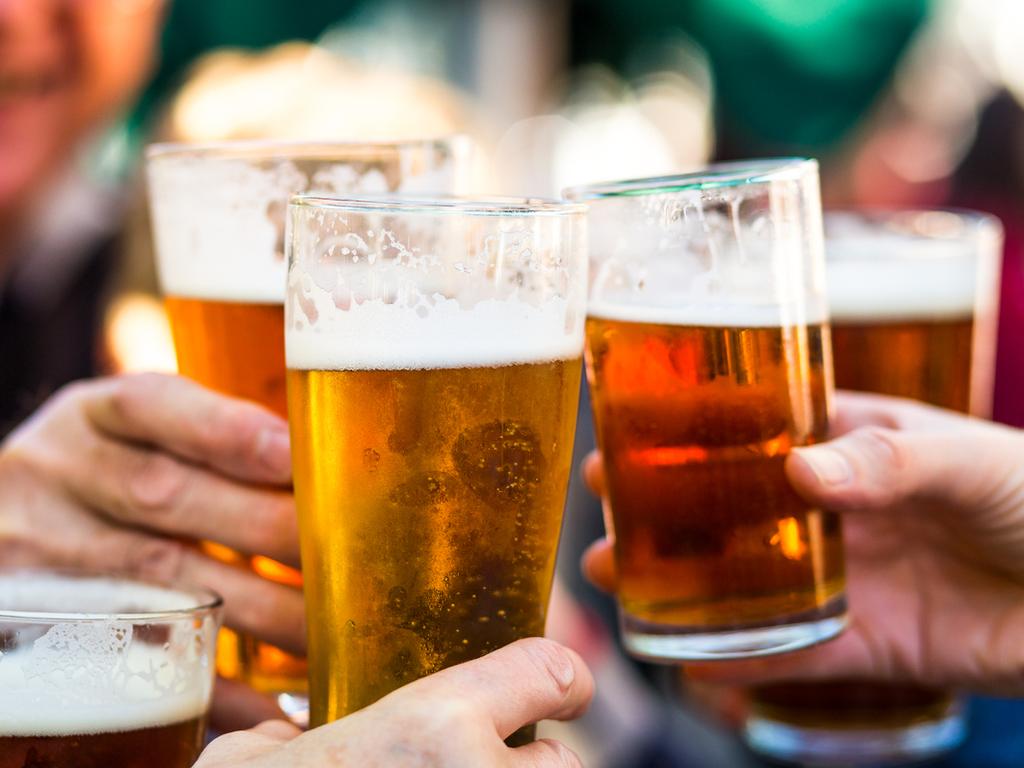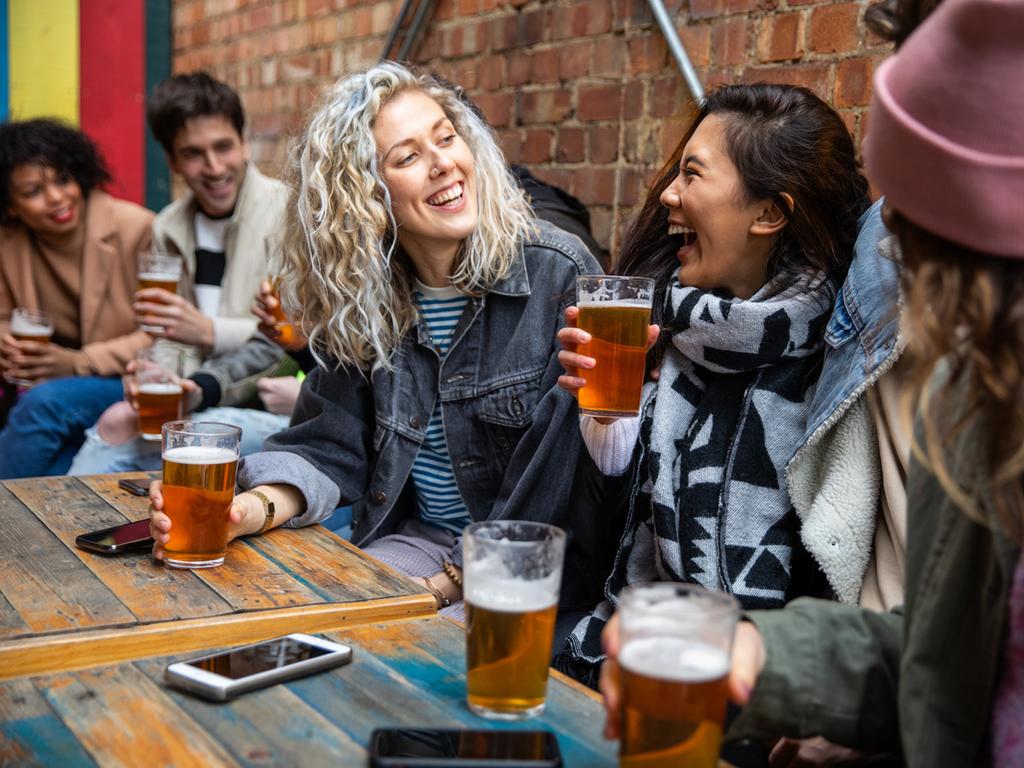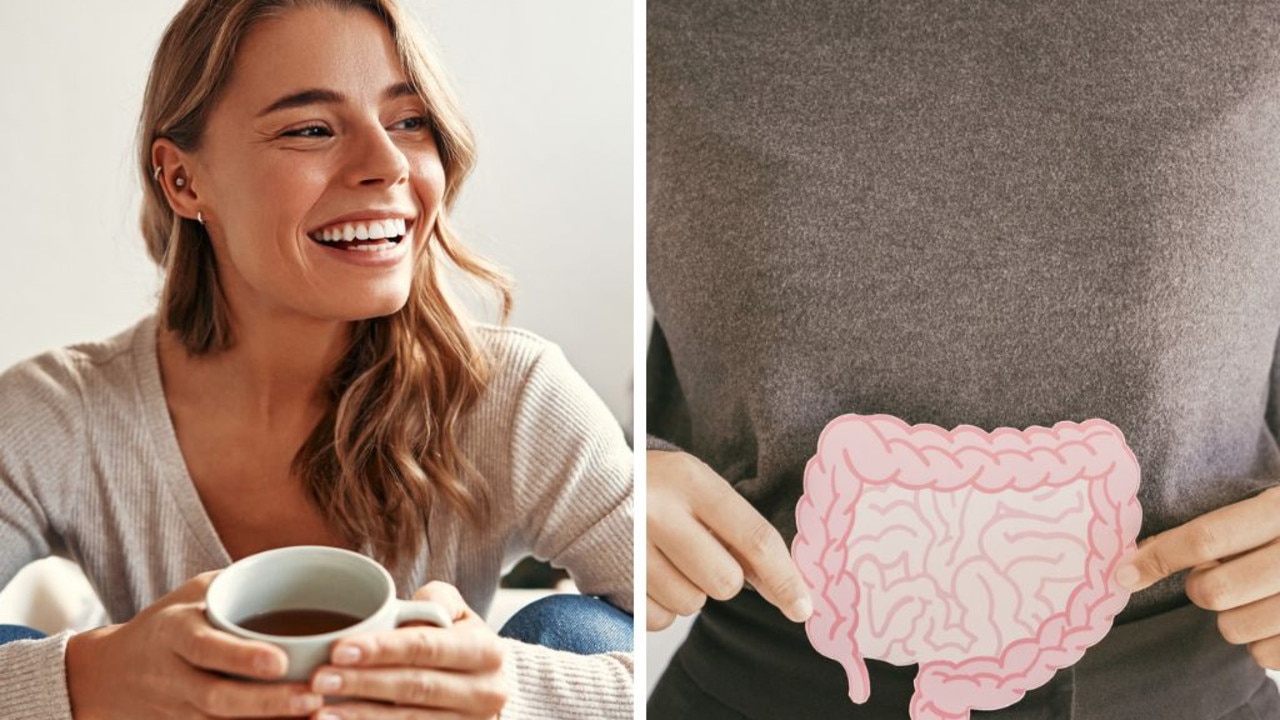Signs you have an alcohol problem and how to stop drinking
Australians have been urged not to turn to alcohol for comfort during the country’s coronavirus lockdown, with experts warning of excruciatingly dire long-term consequences.

It might seem harmless reaching for an alcoholic beverage while subject to a seemingly never-ending string of lockdown restrictions, but doing so could have dire consequences if it becomes a habit, experts have warned.
The annual Dry July challenge has arrived as a sobering reminder of how much Aussies drink, with concerning research confirming most people drink the most when they are at home.
While thousands will be cutting out alcohol for the entirety of July to raise money for people affected by cancer, there is growing focus on drinkers reducing their overall intake in lieu of going completely cold turkey.
RELATED: Australia tops global survey in alcohol drank during Covid-19

The task could prove too overwhelming for people trying to reduce their alcohol consumption, with SMART Recovery encouraging a “harm reduction” approach.
SMART National Program Manager Dr Angela Argent said Dry July could serve as an opportunity for people to begin taking “baby steps” towards a healthier relationship with alcohol.
“If people give themselves the smallest of breaks, even a few days, there’s some clarity and the capacity to think, sleep and do all the things the body needs to do to prepare itself for what comes next,” Dr Argent told news.com.au.
“The absence of needing to make decisions about whether or not they’re going to drink tomorrow, gives people the procedural opportunity to do the work that they need to do,” she said.
Red flags you have an unhealthy relationship with alcohol
Dr Argent said the majority of people who attended SMART Recovery groups said they were there because others had pointed out their problematic behaviour.
Others point it out
Friends or family could be encouraging someone to get help if they have picked up on a negative change in behaviour due to their drinking habits.
“We see lots of hospital admissions in this space and often psych admissions. We have lots of people telling us they don’t know why they blacked out at a party or in the street,” Dr Argent said.
Unable to stick to drink limits
Adults should not be consuming more than 10 standard drinks a week or four during one sitting, and exceeding these limits repetitively could be a huge red flag, FARE CEO Caterina Giorgi said.
“If people are setting drink limits and they’re unable to stick to them and stop drinking once they’ve started, that’s one of the signs,” Ms Giorgi told news.com.au.
Unable to maintain lifestyle
When drinking impacts on someone’s life or the lives of people around them, that could served as another indicator that alcohol has become a problem.
“People might be unable to do the things they would normally do because of their drinking,” Ms Giorgi said.
Alcohol is used to cope
If someone is using alcohol in a ploy to better cope with other stressors in their life, it’s likely they have an issue with alcohol, Ms Giorgi said.
“If people are drinking because they think it’s a way to cope with stress or anxiety – which it isn’t because it contributes to more anxiety – then that’s another sign it might be a problem,” she said.
Benefits of reduced alcohol intake
Reducing alcohol intake can have a host of benefits including improved mood, sleep and energy, according to Ms Giorgi.
“There are range of immediate benefits including being able to sleep better, feeling less anxious, having more energy, and some people say they have a clearer head,” Ms Giorgi told news.com.au.
“Over time, people reduce their risk of getting alcohol-related chronic diseases like cancer, and longer term impacts like alcohol use disorder.”
These changes can then go on to have a ripple effect on broader elements of peoples lives like their relationships, employment and overall wellbeing.
“Often people’s alcohol use impacts on the people around them, and that can be as little as alcohol increasing someone’s anxiety levels and that impacting on people in the family,” Ms Giorgi said.
“It might be that people can’t carry out their day-to-day tasks because of drinking, and then there’s more serious impacts like alcohol being a contributor to family violence.”
How to reduce your alcohol intake
Lockdown hasn’t done many people’s relationship with alcohol any favours, particularly given the emergence of marketing spruiking booze as a fun coping strategy.
Dr Argent recommended anyone who suspects themselves of having a drinking problem to do what they can to stay connected to others, even if it has to be virtually, sooner rather than later.
“It might be as simple as picking up the phone and having a chat with somebody you might not have kept up with as recently as your should, or making sure that someone else in your life is doing OK,” she said.
“It really is about connection. People need to not be isolated, behaviours of concern happen largely when we’re not connected enough.”
More than 100 SMART meetings run weekly online and at a variety of hours, where anyone struggling can air their concerns and receive support.

What to drink instead of alcohol
For people who enjoy a beer or wine with their evening meal but not the brain fog the following morning, alcohol-free drinks like those from CraftZero may be a good option.
“A lot of people don’t know there are non-alcoholic drinks that taste like the alcoholic version,” CraftZero co-founder Sherif Goubran told news.com.au.
“Once they realise they don’t have to put up with the down side of drinking alcohol, a lot of people decide to make the shift.”
Mr Goubran said countless recovering alcoholics had contacted the brand saying its alcohol-free drinks had changed their lives.
“You get the experience of drinking a grown up drink and the flavour, without the effects of alcohol,” he said.
The brand carries wine and spirits, but is best known for its trendy range of craft beer imported from the UK and US, while some are sourced in Australia.
Consumers can get their hands on the range via its website, with it due to hit shelves in Dan Murphy’s in the coming weeks.



